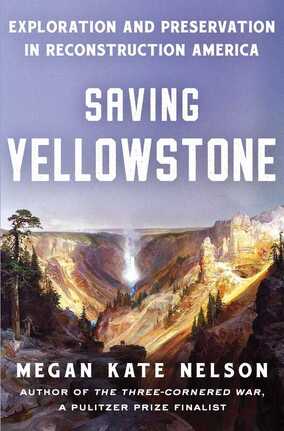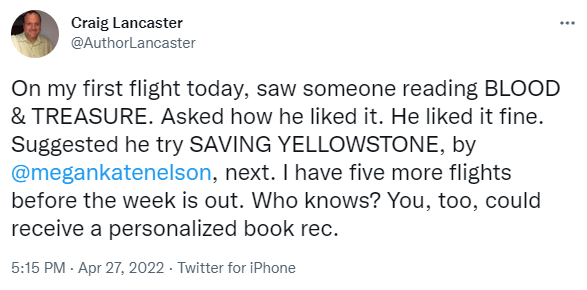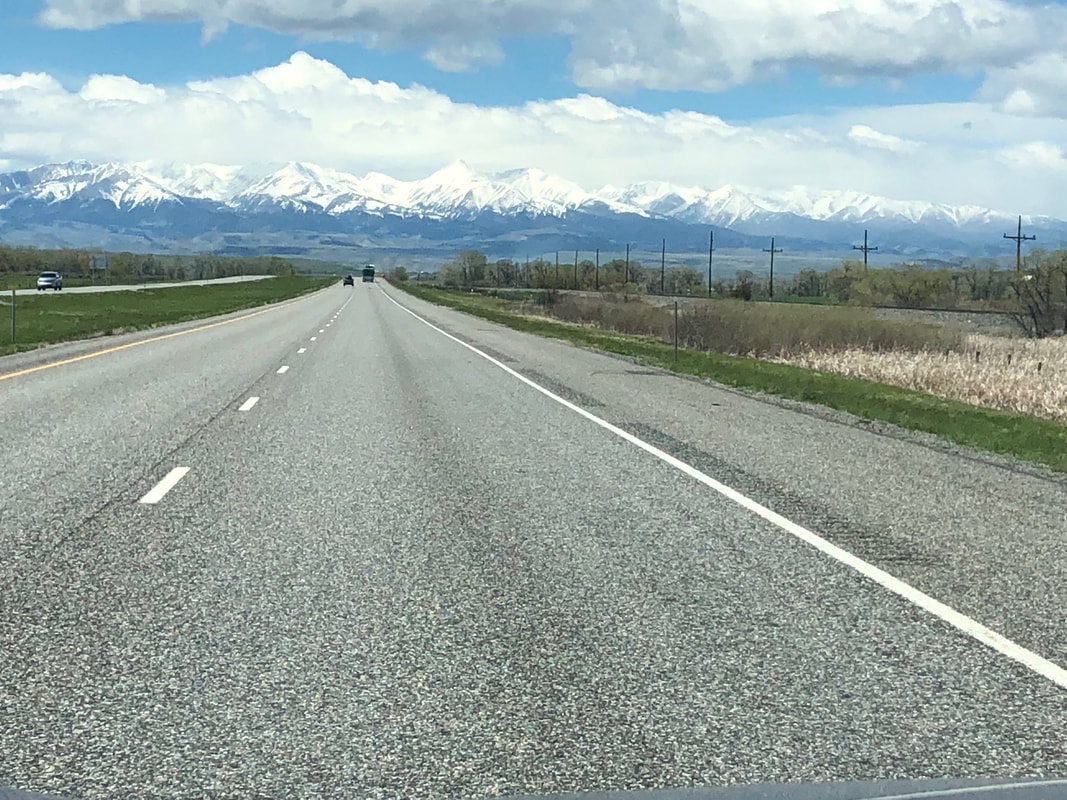|
5/20/2022 0 Comments History as I Wish I'd Learned It Several months ago, one of my journalism and writing heroes, Tom Zoellner, invited me to review Saving Yellowstone for the Los Angeles Review of Books. I was a bit cowed by the prospect, to be perfectly honest. I don't have any standing, in senses literary or academic, to critique the work of Dr. Megan Kate Nelson, the book's author. I hadn't yet read her previous book, The Three-Cornered War, which had been a Pulitzer finalist. I was, upon first consideration, well out of my depth and not particularly inclined to take on the assignment. And then I reconsidered. If Dr. Nelson's literary ambition is to peel back history and explain it to a general audience—as well seems to be the case—then I'm about as general as they come. I'm curious and informed, I live in the region where the events of Dr. Nelson's book unfolded, and I try to live my ideal that an engaged life and mind require making some inroads into all you don't know (a considerable pile for me) and challenging those things you think you do know (also a considerable pile). In those ways, I was redeemed by reading and reviewing Saving Yellowstone—and by backtracking to read The Three-Cornered War. The review speaks for itself, I think. Beyond the completion of my assignment, the book has stayed with me. I've repeatedly recommended it, in sometimes obnoxious ways (see the tweet below). I've put it in the hands of friends. I've pondered the way Dr. Nelson's presentation of history—as something connected, something that breathes and reverberates—stands at odds with the lessons of the garden-variety public education I received in my Texas suburb, in which events were stand-alones and dates were to be memorized and regurgitated. Dr. Nelson's book details the Hayden expedition into Yellowstone, yes, and the establishment of our first national park, but also so much more, including the influences of capitalism, the literal and figurative erasure of Indigenous peoples, how the grappling with Reconstruction was not just a southern story but also a western one. One of the jarring lessons of the read, for me, was seeing the way the Grant administration's attempt to bring freed slaves into the body politic lay parallel with a policy of dispossession and extermination of Indigenous peoples in the West. The aims of the former policy largely failed; the aims of the latter were vastly realized. The result of both has been lasting inequality. The book is a triumph of dot connecting, of context, of presenting the bigger picture that lies outside conventional framing. It cannot be read without the realization that the fracture points of yesterday linger today. In the reading, I was reminded of something I often impart to editing clients when I sense that their narrative has gone passive (something that is NOT an issue for the history Dr. Nelson illuminates or the way she goes about telling it). The "and then, and then, and then" structure of storytelling will not compel an audience's attention or investment. I mentioned the polished-up version of history I absorbed and spat out for tests in my youth. That's how it was often (not always, but often) presented to me: Here's this. Here's this. Here's another thing. Here's still another. Hey, why is your head down and what's with all the drooling? Dr. Nelson's book, a work of scholarship, clicks along the way good storytelling does. It has sinew and electricity and a heaping measure of "but therefore ..." It moves. It speaks. It is kinetic. You must read this book. Yesterday, I drove from Billings to Livingston to see a lecture by Dr. Nelson and by Dr. Shane Doyle, who detailed the fascinating history of Indigenous peoples in Yellowstone.
Their presentations were sponsored by Elk River Arts & Lectures and the Park County Environmental Council and served as a fundraiser for the All-Nations Teepee Village, an event "to honor and recognize the many Tribal Nations with connections to Yellowstone and highlight the indigeneity of the landscape." To learn more about that effort (and to donate), go here, please. I've been in Montana for a while now--much longer in my heart than in my physical presence—and every day that has included a trip to Livingston can be filed away under the heading of "Best Days." Beers and yuks with the great Scott McMillion (who wrote the quintessential Livingston appreciation). A quick bite and more imbibing with Marc Beaudin. Chatting with Elise Atchison and Max Hjortsberg and Tandy Miles Riddle. Seeing pals on almost every corner. May your life be blessed with interesting travel and good friends.
0 Comments
Your comment will be posted after it is approved.
Leave a Reply. |
About CraigCraig Lancaster is an author, an editor, a publication designer, a layabout, a largely frustrated Dallas Mavericks fan, an eater of breakfast, a dreamer of dreams, a husband, a brother, a son, an uncle. And most of all, a man who values a T-shirt. Archives
July 2024
By categoryAll 600 Hours Of Edward And It Will Be A Beautiful Life Awards Books Bookstores Community Connection Craft Craig Reads The Classics Dreaming Northward Education Edward Adrift Family Geography History Libraries Memory Montana NaNoWriMo Northward Dreams People Plays Poetry Public Policy Q&A Social Media Sports Stage Texas The Fallow Season Of Hugo Hunter The Summer Son This Is What I Want Time Travel Work Writers Writing Archives
July 2024
|


 RSS Feed
RSS Feed